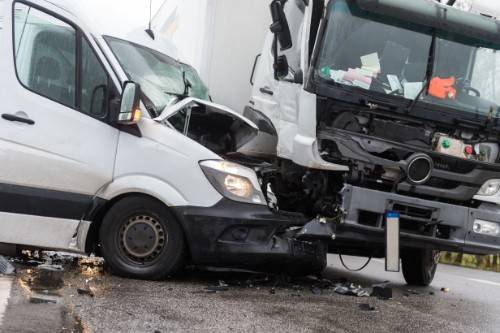If you’ve been involved in a truck accident in Canyon County, Idaho, and are pursuing a personal injury claim, you may find yourself facing a deposition. Depositions are a crucial part of the legal process in any personal injury case, including those involving truck accidents. They provide both sides with an opportunity to gather information, assess the strength of their case, and prepare for trial if necessary.
At Hepworth Holzer, LLP, we understand that facing a deposition can be intimidating, especially when it involves a complex truck accident case. In this article, we will guide you through what to expect during a deposition in a Canyon County, Idaho truck accident case, and the requirements you should be aware of.
The Purpose of a Deposition
A deposition is a sworn, out-of-court testimony given by a witness or party to a lawsuit. Its purpose is to allow both sides to gather information, clarify facts, and assess the credibility of witnesses. Depositions are typically conducted during the pre-trial discovery phase, and the information gathered can be used in court if necessary.
In a truck accident case, depositions serve several important functions:
- Obtaining Information: Depositions help both parties gather information from key witnesses, including the involved parties, eyewitnesses, and experts.
- Assessing Credibility: Attorneys can gauge the credibility of witnesses by observing their demeanor, consistency in testimony, and their ability to provide detailed and accurate information.
- Evaluating Strengths and Weaknesses: Depositions provide an opportunity for attorneys to assess the strengths and weaknesses of their case and the opposing party’s case.
- Preserving Testimony: In case a witness is unavailable for trial, their deposition can be used as evidence in court.
Who Is Present at a Deposition?
Depositions typically involve the following parties:
- Attorneys: Attorneys for both the plaintiff (the injured party) and the defendant (the trucking company, driver, or their insurance company) are present.
- Witnesses: Witnesses, including the parties involved in the accident, eyewitnesses, and experts, are questioned.
- Court Reporter: A court reporter is present to create a verbatim transcript of the deposition. This transcript becomes an official record and can be used as evidence during the trial.
- Video Technician: In some cases, a video technician may be present to record the deposition.
What to Expect During a Deposition
- Oath and Identification
At the beginning of the deposition, the court reporter will administer an oath to the witness, requiring them to tell the truth under penalty of perjury. The witness will then be asked to provide their name and other identifying information for the record.
- Attorney Questioning
Attorneys for both sides will take turns questioning the witness. The plaintiff’s attorney usually goes first, followed by the defendant’s attorney. The questions can cover a wide range of topics related to the accident, injuries, medical history, and other relevant matters.
- Objections
Attorneys may raise objections during the deposition if they believe a question is inappropriate or calls for privileged information. These objections are typically noted for the record, and the witness may still be required to answer the question, depending on the objection’s validity.
- Witness’s Attorney
If the witness has their own attorney (such as in the case of an expert witness or a witness who is also a party to the case), that attorney may be present to advise the witness during questioning.
- Breaks
Depositions can be lengthy, so there will be scheduled breaks to allow the witness to rest, consult with their attorney, or address any personal needs.
- Review and Signing
Once the questioning is complete, the witness will have the opportunity to review the deposition transcript for accuracy and make any necessary corrections. They will then be asked to sign the transcript, affirming its accuracy.
Tips for a Successful Deposition
To ensure a successful deposition in your Canyon County, Idaho truck accident case, consider the following tips:
- Be Prepared: Work closely with your attorney to prepare for the deposition. Review key facts and documents related to your case.
- Stay Calm and Truthful: Remain calm and composed during questioning. Always tell the truth and avoid guessing or speculating.
- Listen Carefully: Listen carefully to each question before answering. If you don’t understand a question, ask for clarification.
- Take Your Time: Don’t rush your answers. Take your time to think before responding.
- Be Consistent: Be consistent in your answers and avoid contradicting yourself.
- Follow Your Attorney’s Advice: Trust your attorney’s guidance during the deposition. They will help protect your rights and interests.
Facing a deposition can be a daunting experience, especially in a complex truck accident case. That’s why it’s crucial to have experienced legal representation on your side. At Hepworth Holzer, LLP, our team of skilled attorneys is dedicated to helping you navigate the deposition process and fighting for the compensation you deserve.
A deposition is a pivotal step in any Canyon County, Idaho truck accident case. It’s an opportunity to gather vital information, assess the strength of your case, and ultimately work toward a fair resolution. By understanding what to expect during a deposition and having the support of experienced legal counsel, you can approach this process with confidence.
If you or a loved one has been involved in a truck accident in Canyon County, Idaho, and are facing a deposition, don’t hesitate to reach out to Hepworth Holzer, LLP. We are here to guide you through the legal process, protect your rights, and advocate for your best interests. Contact us today to schedule a consultation and take the first step toward achieving the justice and compensation you deserve.

